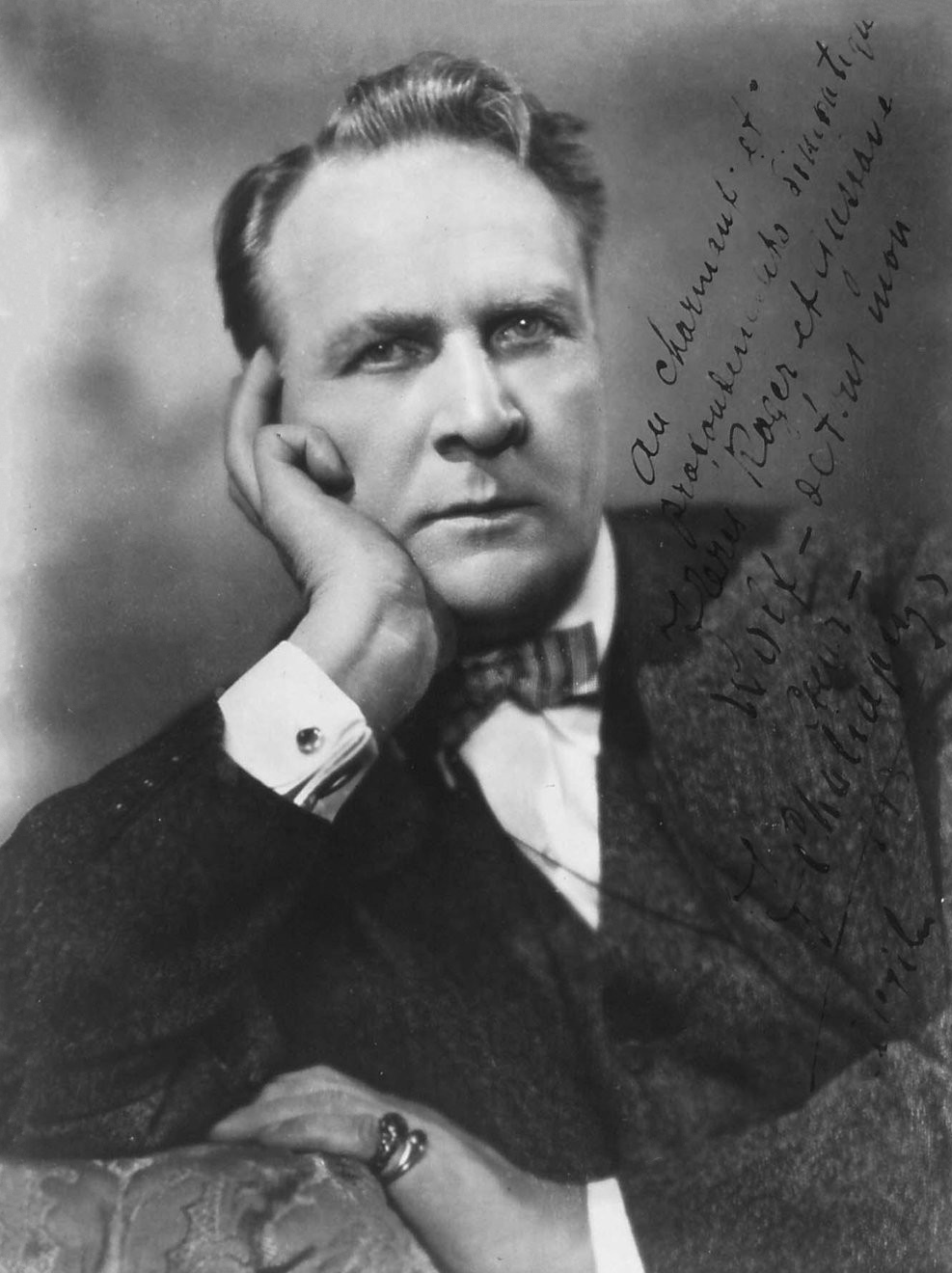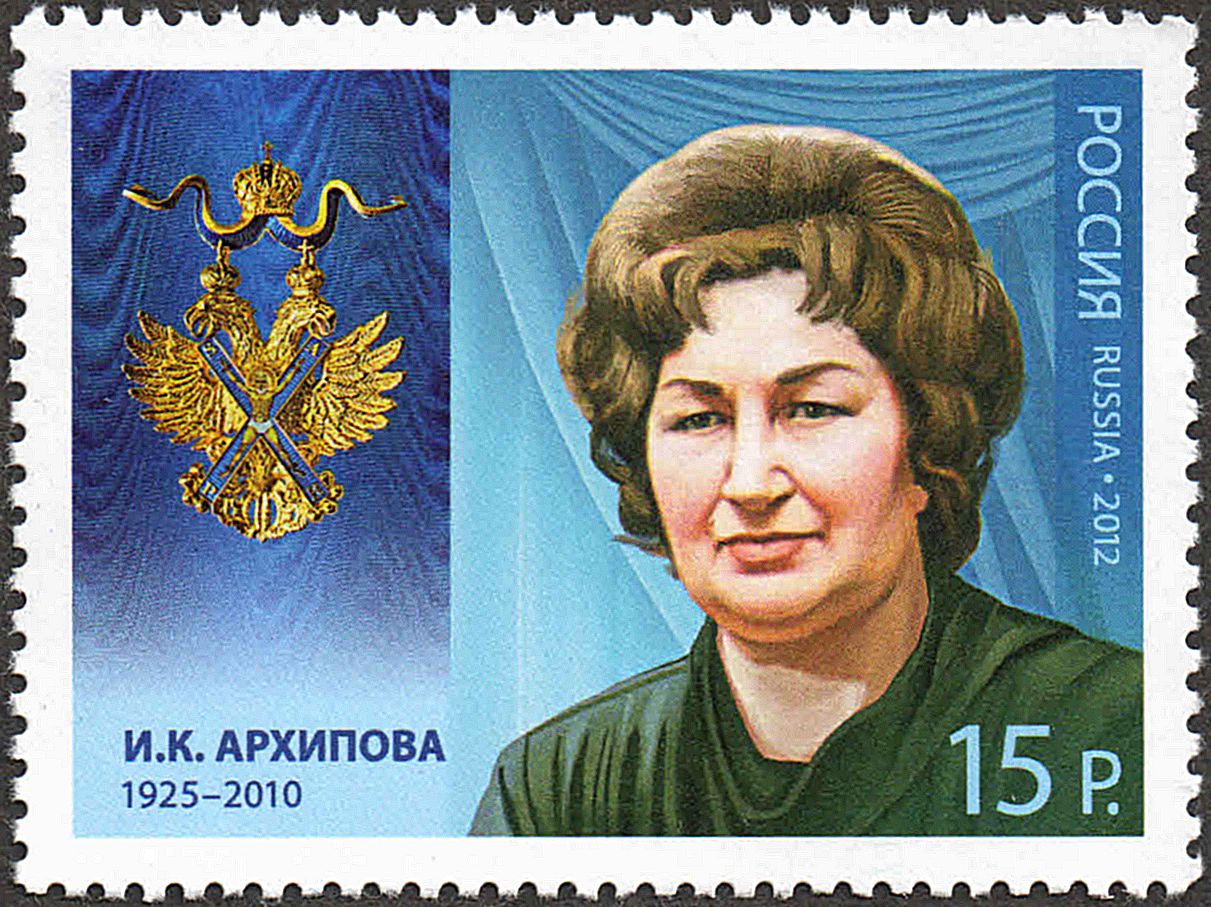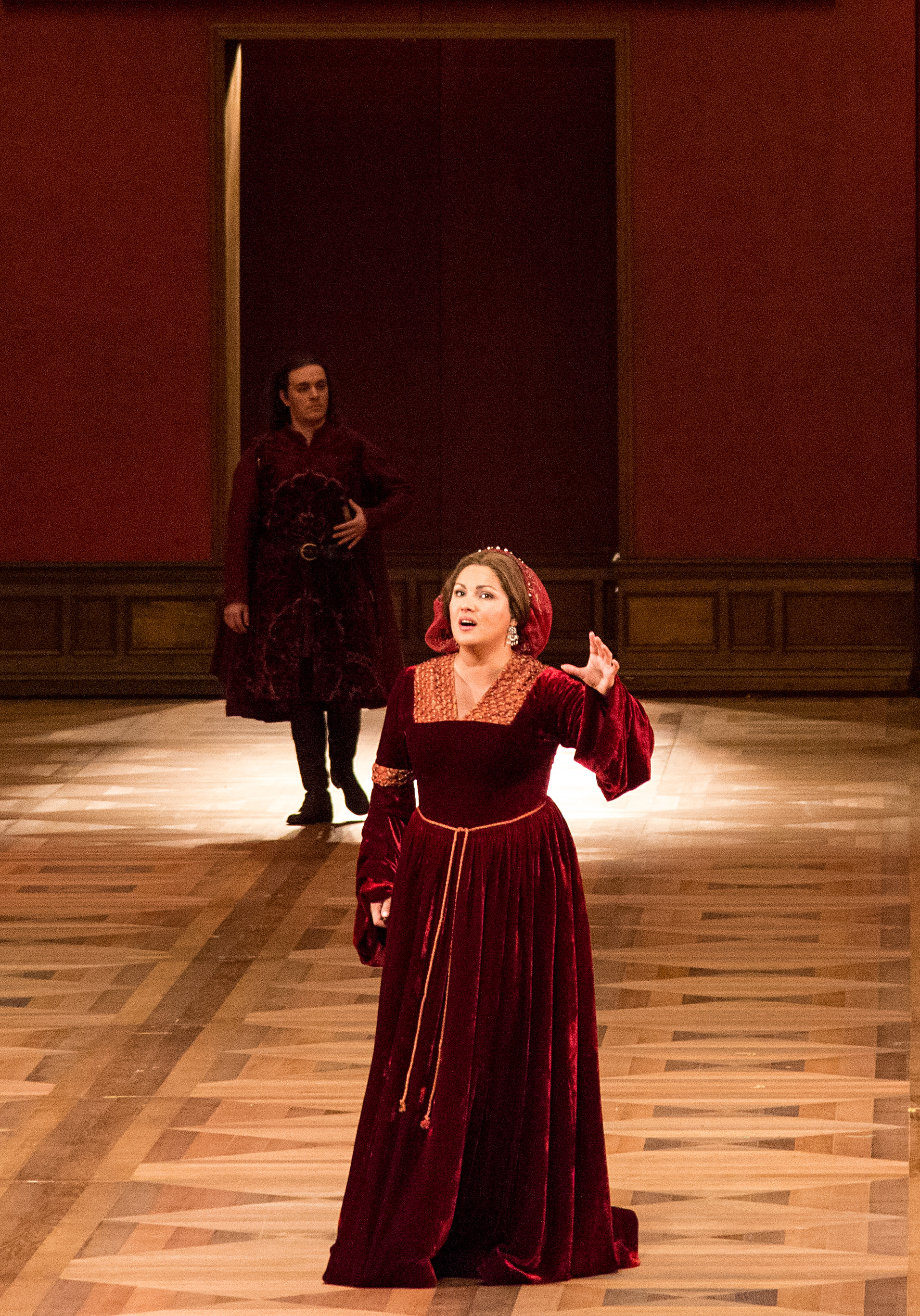|
List Of Russian Opera Singers
This a list of opera singers from Russian Federation, Soviet Union and Russian Empire including both ethnic Russians and people of other ethnicities. This list includes those, who were born in the Russian Federation/Soviet Union/Russian Empire but later emigrated, and those, who were born elsewhere but immigrated to the country and performed there for a long time. Opera came to Russia in the 18th century. At first there were mostly Italian language operas presented by Italian opera troupes. Later some foreign composers serving to the Russian Imperial Court began to write Russian-language operas, while some Russian composers were involved into writing of the operas in Italian and French. Only at the beginning of the 1770s the first modest attempts of the composers of Russian origin to compose operas to the Russian librettos were made. The 19th century was the golden age of Russian opera, with such prominent composers as Mikhail Glinka, Alexander Dargomyzhsky, Modest Mussor ... [...More Info...] [...Related Items...] OR: [Wikipedia] [Google] [Baidu] |
Chaliapin Godunov 1912
Feodor Ivanovich Chaliapin ( rus, Фёдор Ива́нович Шаля́пин, Fyodor Ivanovich Shalyapin, ˈfʲɵdər ɪˈvanəvʲɪtɕ ʂɐˈlʲapʲɪn}; April 12, 1938) was a Russian opera singer. Possessing a deep and expressive bass voice, he enjoyed an important international career at major opera houses and is often credited with establishing the tradition of naturalistic acting in his chosen art form. During the first phase of his career, Chaliapin endured direct competition from three other great basses: the powerful (1869–1942), the more lyrical (1871–1948), and Dmitri Buchtoyarov (1866–1918), whose voice was intermediate between those of Sibiriakov and Kastorsky. The fact that Chaliapin is far and away the best remembered of this magnificent quartet of rival basses is a testament to the power of his personality, the acuteness of his musical interpretations, and the vividness of his performances. Spelling note He himself spelled his surname, French-style, ... [...More Info...] [...Related Items...] OR: [Wikipedia] [Google] [Baidu] |
Sergei Prokofiev
Sergei Sergeyevich Prokofiev; alternative transliterations of his name include ''Sergey'' or ''Serge'', and ''Prokofief'', ''Prokofieff'', or ''Prokofyev''., group=n (27 April .S. 15 April1891 – 5 March 1953) was a Russian composer, pianist, and conductor who later worked in the Soviet Union. As the creator of acknowledged masterpieces across numerous music genres, he is regarded as one of the major composers of the 20th century. His works include such widely heard pieces as the March from ''The Love for Three Oranges,'' the suite ''Lieutenant Kijé'', the ballet ''Romeo and Juliet''—from which "Dance of the Knights" is taken—and ''Peter and the Wolf.'' Of the established forms and genres in which he worked, he created—excluding juvenilia—seven completed operas, seven symphonies, eight ballets, five piano concertos, two violin concertos, a cello concerto, a symphony-concerto for cello and orchestra, and nine completed piano sonatas. A graduate of the ... [...More Info...] [...Related Items...] OR: [Wikipedia] [Google] [Baidu] |
Olga Averino
Olga Averino (November 15, 1895 – January 17, 1989) was a Russian-born soprano and voice teacher. A white émigré to the United States in the wake of the Russian Civil War, she was prominent in the musical life of Boston for over 60 years, first as a singer and later as a distinguished voice teacher. Biography Olga Averino was born into a family of musicians in Moscow in 1895. Her father, Nicholas Averino, was a violist and director of the music conservatory in Rostov. Her mother, Olga Laroche, was a pianist, the daughter of the Russian musicologist Herman Laroche and the god-daughter of the composer Pyotr Ilyich Tchaikovsky. Averino, herself was the god-daughter of the composer's brother Modest Ilyich Tchaikovsky. She trained in piano and voice at the Moscow Conservatory and married the violinist Paul Fedorovsky. In 1918, the Bolshevik Revolution and ensuing civil war led the young couple to flee Russia with their baby daughter. They travelled across Siberia to Vlad ... [...More Info...] [...Related Items...] OR: [Wikipedia] [Google] [Baidu] |
Irina Arkhipova
Irina Konstantinovna Arkhipova (russian: Ири́на Константи́новна Архи́пова; 2 January 1925 11 February 2010, Moscow) was a Soviet and Russian mezzo-soprano, and later contralto, opera singer. She sang leading roles first in Russia at the Sverdlovsk Opera and the Bolshoi Theatre, and then throughout Europe and in the United States. People's Artist of the USSR (1966) and Hero of Socialist Labour (1984). Biography Irina Arkhipova was born in Moscow.The Soviet Union, A Biographical Dictionary, Macmillan, NY, 1991. Before switching to voice, she studied architecture at the Moscow Architectural Institute, graduating in 1948. She then studied at the Moscow Conservatory. In 1954 she debuted in Sverdlovsk, and was made a member of the Bolshoi Theatre in 1956. She became a member of the Communist Party of the Soviet Union in 1963 and was named a People's Artist of the USSR in 1966. Arkhipova was at the height of her career in the 1960s and 1970s, during whic ... [...More Info...] [...Related Items...] OR: [Wikipedia] [Google] [Baidu] |
Ğäziz Älmöxämmädev
Gaziz Salih uli Almukhametov (pronounced , Ğäziz Älmöxämmädev; Bashkir Cyrillic: Ғәзиз Сәлих улы Әлмөхәмәтов; Tatar Cyrillic: Газиз Салих улы Әлмөхәммәдев; russian: Гази́з Сали́хович Альмухаме́дов , ''Gaziz Salikhovich Almukhamedov''; 1895–1938) was an ethnic Bashkir, opera singer (tenor) and composer. He was born in the village of Muraptal of Sterlitamaksky Uyezd of Ufa Governorate (now Kuyurgazinsky District of the Republic of Bashkortostan).From 1922 to 1929, he lived in Kazan. He was the People's Artist of the BASSR from 1929.Founder of the Bashkir State Opera and Ballet Theater in Ufa. In collaboration with Vasili Vinogradov and Soltan Ğäbäşi, he composed the first Tatar operas, ''Saniä'' (1925) and ''Eşçe (The Worker)'' (1930). Älmöxämmädev composed also vocal and instrumental concertos. Biography His mother Galima gave birth to 20 children - all sons, of whom only six s ... [...More Info...] [...Related Items...] OR: [Wikipedia] [Google] [Baidu] |
Alexander Anisimov
Alexander Mikhailovich Anissimov (Анисимов, Александр Михайлович; born 8 October 1947) is a Russian conductor. In 1995 he was appointed Principal Guest Conductor of the National Symphony Orchestra of Ireland The National Symphony Orchestra (NSO; previously known as RTÉ Symphony Orchestra and the RTÉ National Symphony Orchestra) is the largest professional orchestra in Ireland. Housed at the National Concert Hall, Dublin, since January 2022, it used .... References 1947 births Living people People's Artists of the RSFSR 21st-century Russian conductors (music) Russian male conductors (music) 21st-century Russian male musicians {{Russia-conductor-stub ... [...More Info...] [...Related Items...] OR: [Wikipedia] [Google] [Baidu] |
Anna Netrebko
Anna Yuryevna Netrebko (russian: Анна Юрьевна Нетребко; born 18 September 1971) is an Austrian operatic soprano with an active international career and performed prominently at the Salzburg Festival, Metropolitan Opera, Vienna State Opera, and The Royal Opera. Discovered and promoted by Valery Gergiev, she began her career at the Mariinsky Theatre, collaborating with the conductor in the theater and performances elsewhere. She was noticed globally after playing Donna Anna in Mozart's ''Don Giovanni'' at the 2002 Salzburg Festival. She had been known for her rendition of lyric and coloratura soprano roles but proceeded into heavier 19th-century romantic roles, such as Leonora in ''Il trovatore'' and the role of Lady Macbeth in ''Macbeth''. Since 2016, she has turned her focus to verismo repertoire. In 2015 she married Azerbaijani tenor Yusif Eyvazov, with whom she has been performing frequently since. She has been an exclusive artist for Deutsche Grammophon si ... [...More Info...] [...Related Items...] OR: [Wikipedia] [Google] [Baidu] |
Dmitri Hvorostovsky
Dmitri Aleksandrovich Hvorostovsky (russian: Дми́трий Алекса́ндрович Хворосто́вский, ; 16 October 1962 – 22 November 2017) was a Russian operatic baritone. Early life and education Hvorostovsky was born in Krasnoyarsk in Siberia during a time when the city was mostly closed to foreigners. An only child, he was raised mostly by his grandmother and a grandfather who, according to Dmitri, was a war veteran suffering from alcoholism. His father, an engineer, and his mother, a gynecologist, both had extremely time-consuming careers and were often only around on the weekends and holidays. Career Hvorostovsky came to international prominence in 1989 when he won the BBC Cardiff Singer of the World competition, beating local favourite Bryn Terfel in the final round. His performance included Handel's "Ombra mai fu" and "Per me giunto...O Carlo ascolta" from Verdi's ''Don Carlos''. His operatic debut in the West was at the Nice Opera in Tchaikovs ... [...More Info...] [...Related Items...] OR: [Wikipedia] [Google] [Baidu] |
Bass (voice Type)
A bass is a type of classical male singing voice and has the lowest vocal range of all voice types. According to ''The New Grove Dictionary of Opera'', a bass is typically classified as having a vocal range extending from around the second E below middle C to the E above middle C (i.e., E2–E4).; ''The Oxford Dictionary of Music'' gives E2–E4/F4 Its tessitura, or comfortable range, is normally defined by the outermost lines of the bass clef. Categories of bass voices vary according to national style and classification system. Italians favour subdividing basses into the ''basso cantante'' (singing bass), ''basso buffo'' ("funny" bass), or the dramatic ''basso profondo'' (low bass). The American system identifies the bass-baritone, comic bass, lyric bass, and dramatic bass. The German ''Fach'' system offers further distinctions: Spielbass (Bassbuffo), Schwerer Spielbass (Schwerer Bassbuffo), Charakterbass (Bassbariton), and Seriöser Bass. These classification systems can ... [...More Info...] [...Related Items...] OR: [Wikipedia] [Google] [Baidu] |
Feodor Chaliapin
Feodor Ivanovich Chaliapin ( rus, Фёдор Ива́нович Шаля́пин, Fyodor Ivanovich Shalyapin, ˈfʲɵdər ɪˈvanəvʲɪtɕ ʂɐˈlʲapʲɪn}; April 12, 1938) was a Russian opera singer. Possessing a deep and expressive bass voice, he enjoyed an important international career at major opera houses and is often credited with establishing the tradition of naturalistic acting in his chosen art form. During the first phase of his career, Chaliapin endured direct competition from three other great basses: the powerful (1869–1942), the more lyrical (1871–1948), and Dmitri Buchtoyarov (1866–1918), whose voice was intermediate between those of Sibiriakov and Kastorsky. The fact that Chaliapin is far and away the best remembered of this magnificent quartet of rival basses is a testament to the power of his personality, the acuteness of his musical interpretations, and the vividness of his performances. Spelling note He himself spelled his surname, French-style ... [...More Info...] [...Related Items...] OR: [Wikipedia] [Google] [Baidu] |
Galina Vishnevskaya
Galina Pavlovna Vishnevskaya (russian: links=no, Галина Павловна Вишневская, Ivanova, Иванова; 25 October 192611 December 2012) was a Russian soprano opera singer and recitalist who was named a People's Artist of the USSR in 1966. She was the wife of cellist Mstislav Rostropovich, and mother to their two daughters, Olga and Elena Rostropovich. Biography Vishnevskaya was born in Leningrad (now Saint Petersburg). She made her professional stage debut in 1944 singing operetta. After a year studying with Vera Nikolayevna Garina, she won a competition held by the Bolshoi Theatre in Moscow (with Sergei Rachmaninoff, Rachmaninoff's song "O, Do Not Grieve" and Giuseppe Verdi, Verdi's aria "O patria mia" from ''Aida'') in 1952. The next year, she became a member of the Bolshoi Theatre. On 24 March 1957, she made her debut in Finnish National Opera as Tatyana in Eugene Onegin (opera), Eugene Onegin. On 9 May 1960, she made her first appearance in Sarajevo ... [...More Info...] [...Related Items...] OR: [Wikipedia] [Google] [Baidu] |
Leonid Sobinov
Leonid Vitalyevich Sobinov (russian: Леони́д Вита́льевич Со́бинов, 7 June S 26 May1872 – 14 October 1934) was an Imperial Russian operatic tenor. His fame continued unabated into the Soviet era, and he was made a People's Artist of the RSFSR in 1923. Sobinov's voice was lyrical in size and tone, and it was employed with discerning taste and excellent musicianship. Biography Leonid Sobinov was born in Yaroslavl, into the family of the lower middle-class trade officer Vitaly Vasilyevich Sobinov. The period of his childhood was apparently happy and calm. Sobinov's mother, who died early, was a keen singer, and due to her inspiration, he began singing himself. In 1881, at the age of nine, he entered a boys' school, graduating in 1890 with a silver medal. As a schoolboy, he had played the guitar as well as joining a local choir. Sobinov enrolled in a university course in Moscow. This led to a degree in law, which he received in 1894. After university, Sob ... [...More Info...] [...Related Items...] OR: [Wikipedia] [Google] [Baidu] |







